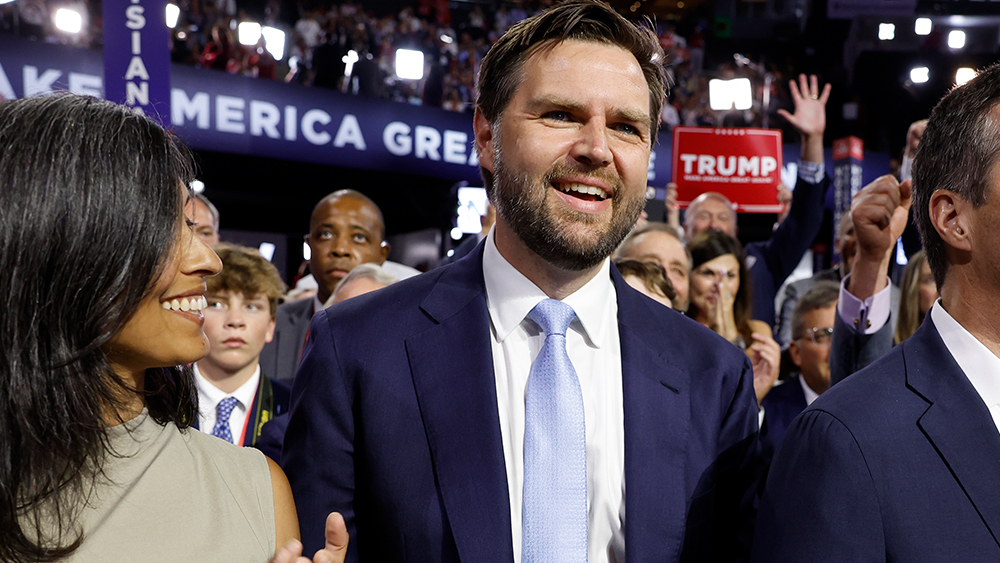Decentralized AI: Mike Adams and Maria Zeee advocate for open source solutions to combat centralized control
02/17/2025 / By Finn Heartley

- Mike Adams warns of centralized AI’s risks, including surveillance, bias, and censorship, which threaten privacy and democratic principles, advocating for decentralized alternatives.
- Decentralized AI, like tools from Brighteon.ai, enhances user privacy and control by running locally without cloud connectivity, promoting transparency and resistance to manipulation.
- Open-source AI models ensure community scrutiny and continuous improvement, crucial for maintaining unbiased and value-aligned systems, unlike opaque centralized models.
- Decentralized AI applications span content creation, activism, and more, empowering small businesses and independent media, democratizing technology and amplifying diverse voices.
- In government, transparent, decentralized AI could enhance public services and reduce bias in judicial systems, provided the training data is unbiased and the system is open to scrutiny.
In a recent interview with Maria Zeee, Mike Adams delved into the dangers of centralized AI and the transformative benefits of decentralized, open-source AI solutions. The conversation, rich with insights and urgency, underscores the critical need for transparent, decentralized AI systems that can empower individuals and small businesses while reducing the risk of bias and censorship.
The perils of Centralized AI
Adams, known for his deep understanding of technology and its societal impacts, emphasized the inherent risks of centralized AI. He argued that when AI systems are controlled by a few powerful entities, they can easily become tools for surveillance, bias, and even censorship. This concentration of control not only threatens individual privacy but also undermines the democratic principles of transparency and accountability.
One of the most significant concerns Adams raised is the potential for AI to be weaponized against the public. He cited examples where AI systems, controlled by central authorities, have been used to disseminate biased information and manipulate public opinion. This centralization of power, he warned, can lead to a dystopian future where individual autonomy is severely compromised.
The benefits of Decentralized AI
To combat these dangers, Adams and Zeee advocate for decentralized AI solutions. Decentralized AI systems, such as the tools being developed at Brighteon.ai, are designed to be run locally and do not connect to the cloud, ensuring user privacy and control. This approach prioritizes transparency and user sovereignty, making it significantly more resilient to manipulation and bias.
Adams highlighted the importance of open-source AI models, where the training data, weights, and algorithms are publicly accessible. This transparency allows for community scrutiny and continuous improvement, ensuring that the AI systems remain unbiased and aligned with the values of those who use them. He pointed out that tools like Brighteon.ai are specifically designed to be run locally, making them less vulnerable to external interference and more reliable for critical tasks.
Practical applications of Decentralized AI
The practical applications of decentralized AI are vast and promising. Adams and Zeee discussed how these technologies can be used to enhance various sectors, from content creation to activism. For instance, Brighteon.ai can be used to generate high-quality content, summarize interviews, and even create music videos, all while maintaining the integrity and creativity of the original creator.
In the realm of activism, decentralized AI can empower small businesses and independent media organizations by providing them with powerful tools to produce and disseminate information. This democratization of technology can help break the monopoly of large media conglomerates and ensure that diverse voices are heard.
The future of AI in government and society
Adams also touched on the potential role of AI in government, suggesting that decentralized AI can be used to enhance the efficiency and fairness of public services. He proposed that AI judges, if developed and deployed with transparency and open-source principles, could reduce human bias and corruption in the judicial system. However, he emphasized that the key lies in the training data and the openness of the system. If the training data is biased or the system is a black box, the AI will perpetuate the same issues it aims to solve.
The conversation also addressed the broader implications of AI in society, including the potential for AI to take over mundane tasks and free up human creativity. Adams stressed that the goal should not be to replace human workers but to augment their capabilities, making them more effective and productive.
Conclusion
As the world continues to grapple with the rapid advancements in AI, the insights provided by Mike Adams and Maria Zeee offer a clear and compelling vision for a future where technology serves humanity rather than controls it. By embracing decentralized, open-source AI solutions, we can mitigate the risks of centralized control and create a more equitable, transparent, and resilient society. The tools are available, and the choice is ours to use them wisely for the betterment of all.
Watch this full episode of the “Health Ranger Report” with Mike Adams, the Health Ranger, and Maria Zeee as they talk about fighting AI with AI.
This video is from the Health Ranger Report channel on Brighteon.com.
More related stories:
U.S. VP Vance warns Europe against adopting Chinese open-source AI models
VP Vance threatens Europe over Chinese Open AI models
“Science For Sale” details how the government works with corporations to undermine true science
Sources include:
Submit a correction >>
Tagged Under:
AI, breakthroughs, Censored, Censorship, computers, freedom, future science, internet, Liberty, privacywatch, science, technology, technology advances, universe, Virtual reality
This article may contain statements that reflect the opinion of the author
RECENT NEWS & ARTICLES
COPYRIGHT © 2017 BigTech.news
All content posted on this site is protected under Free Speech. BigTech.news is not responsible for content written by contributing authors. The information on this site is provided for educational and entertainment purposes only. It is not intended as a substitute for professional advice of any kind. BigTech.news assumes no responsibility for the use or misuse of this material. All trademarks, registered trademarks and service marks mentioned on this site are the property of their respective owners.




















